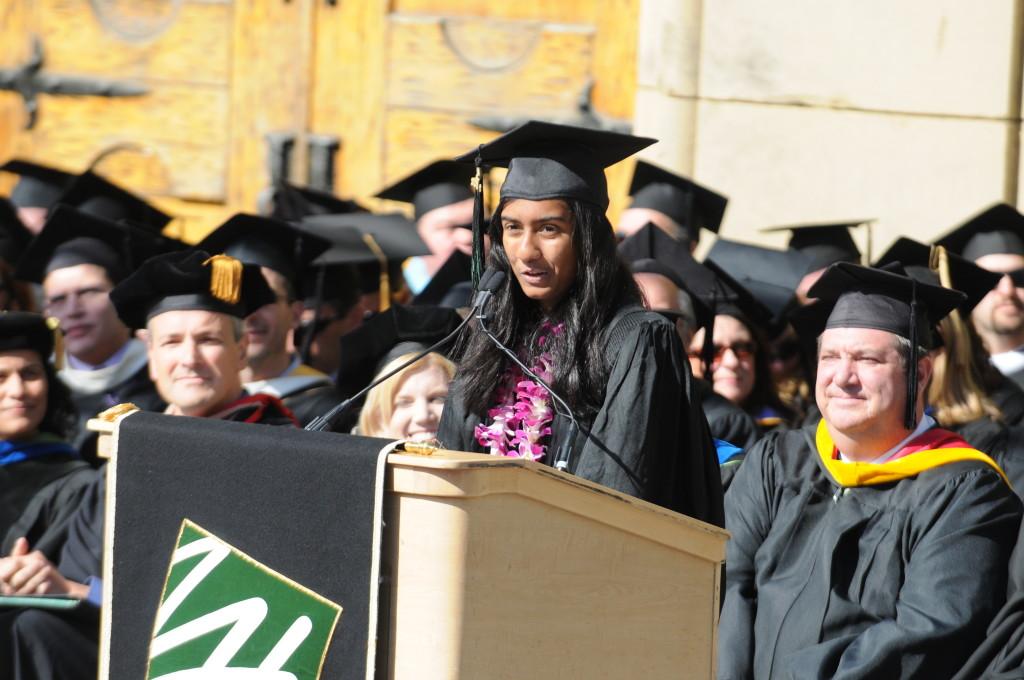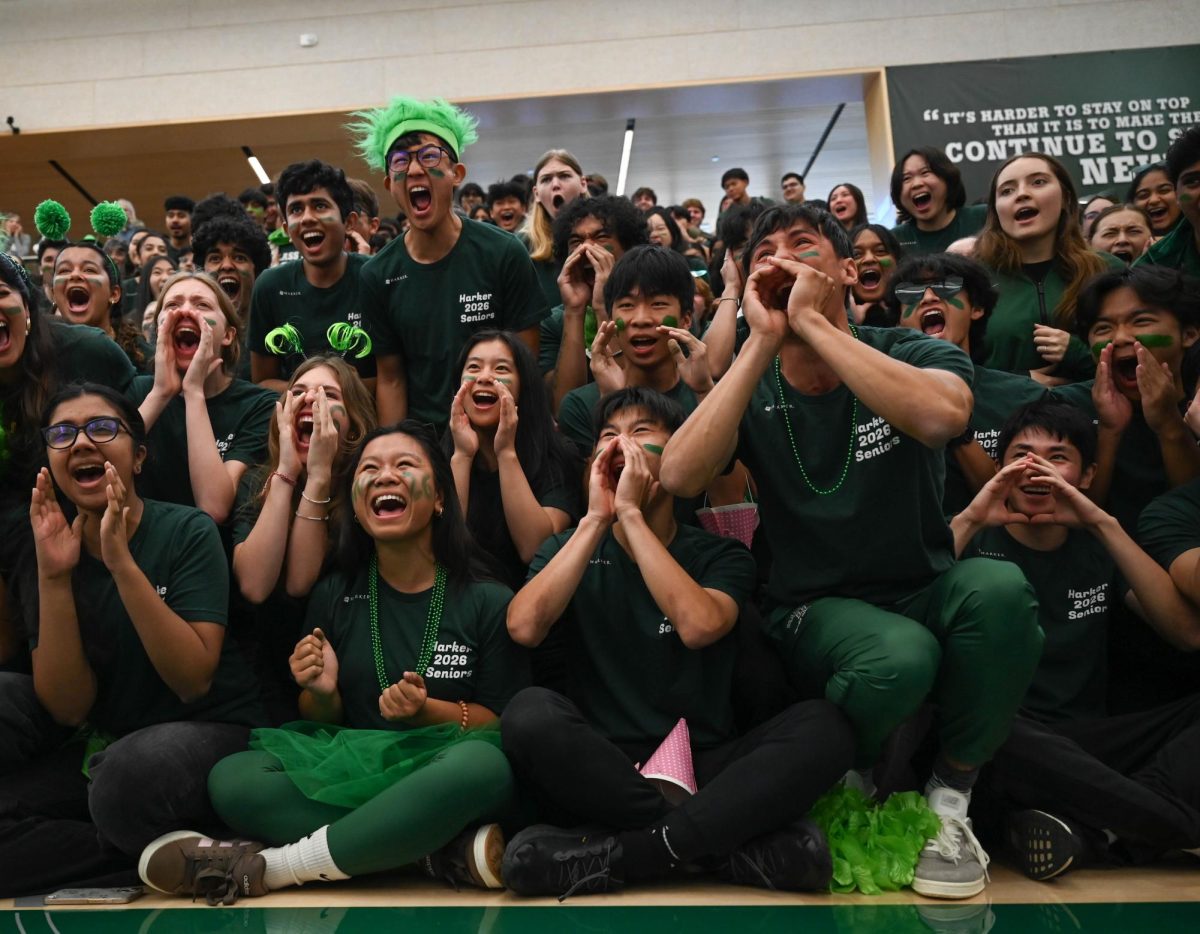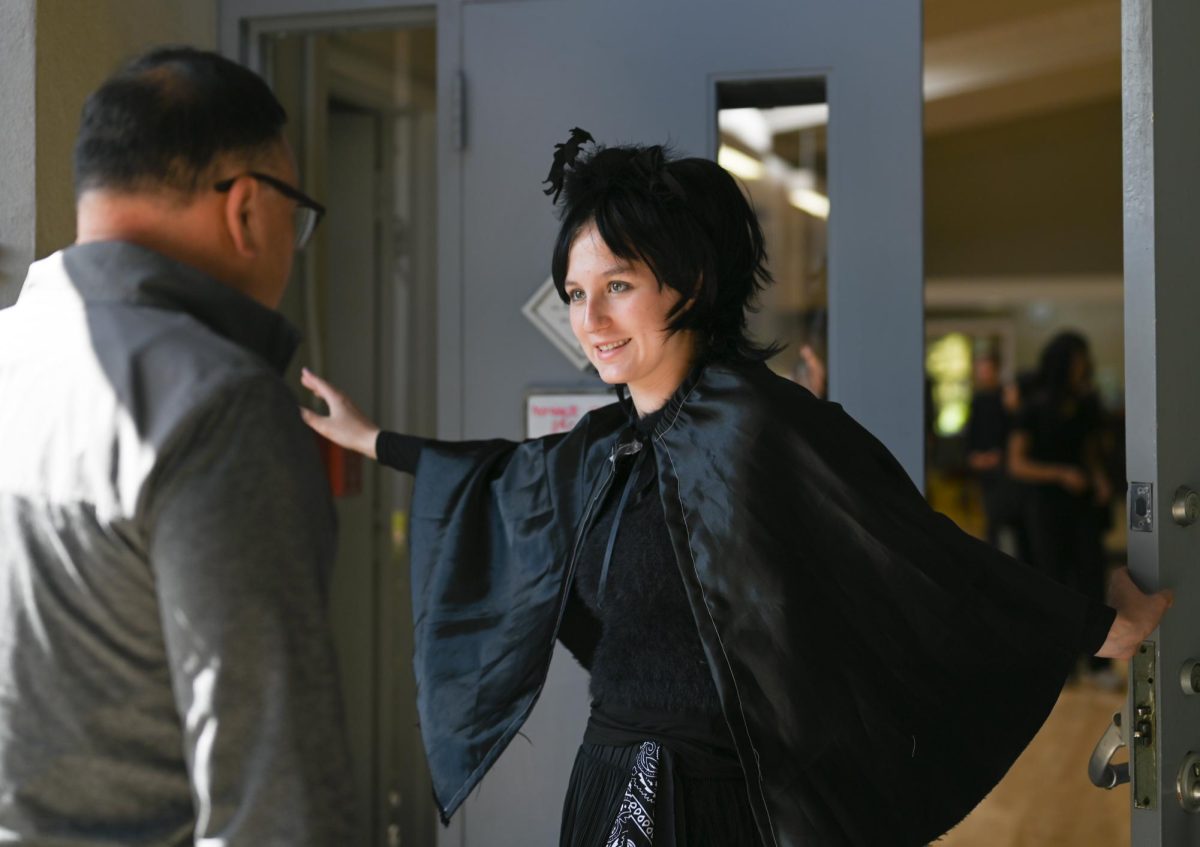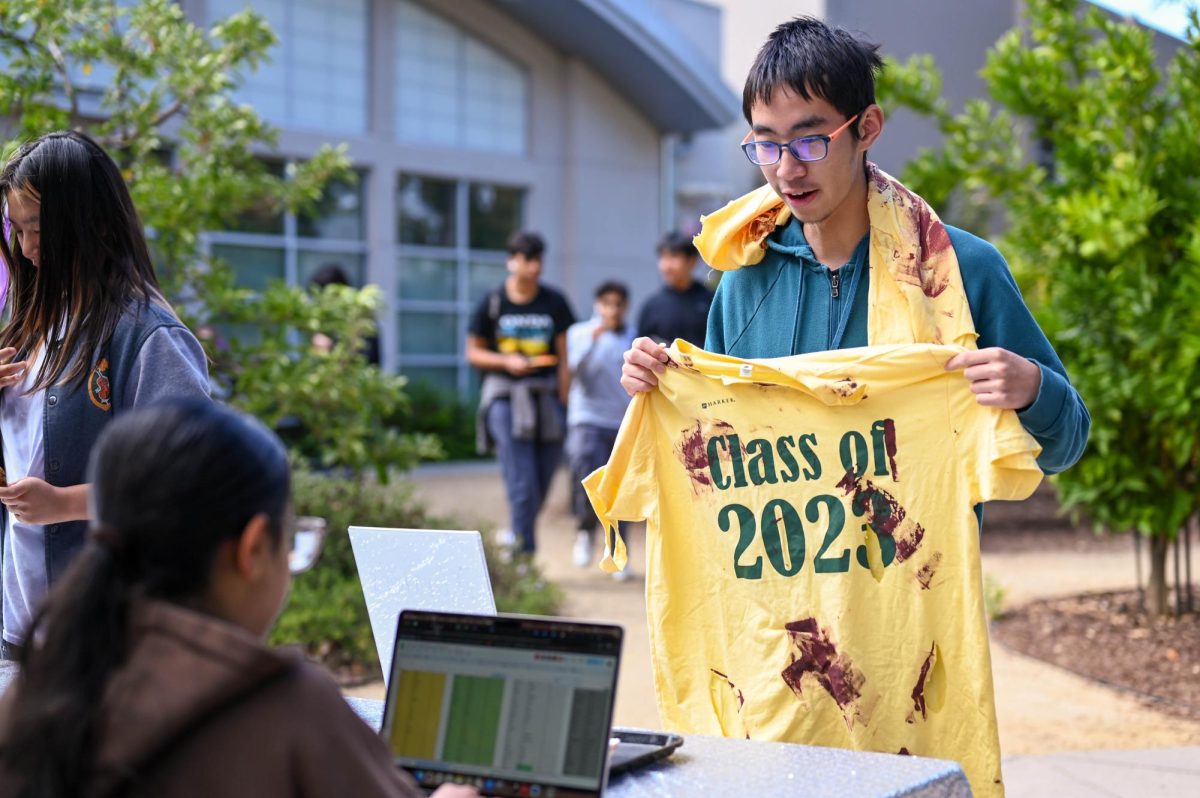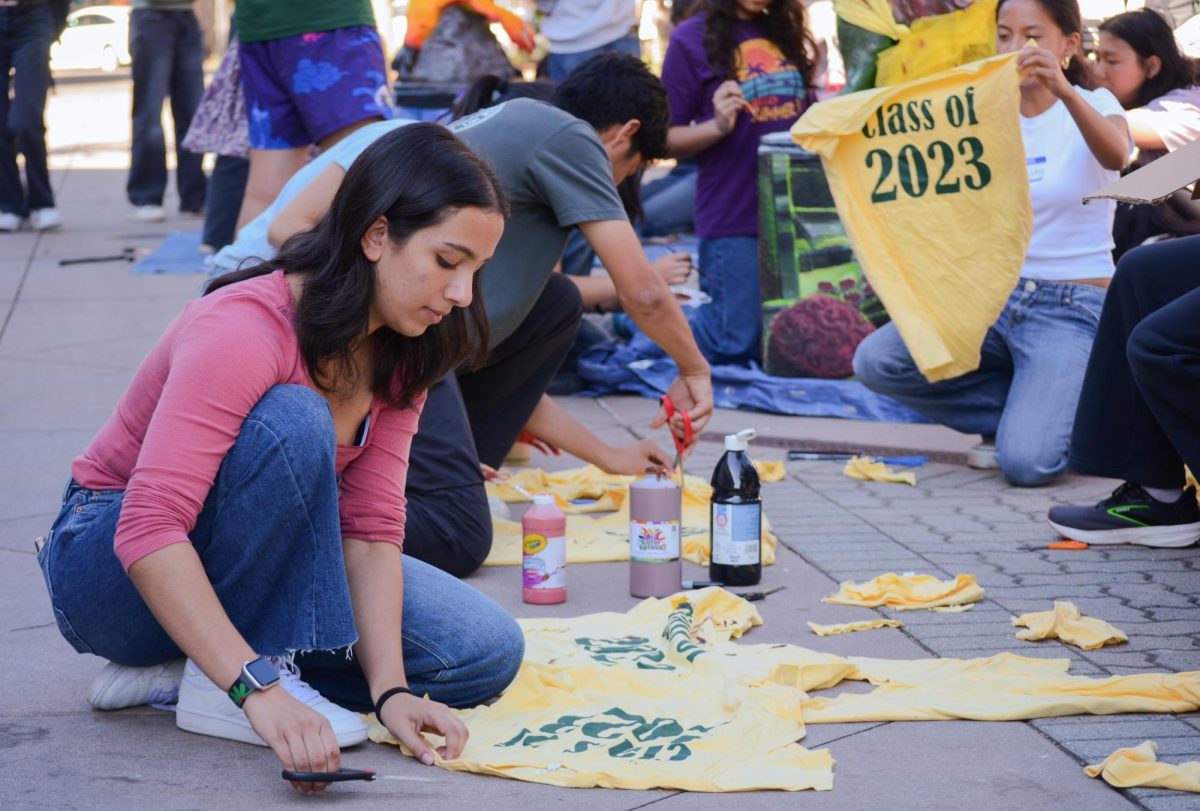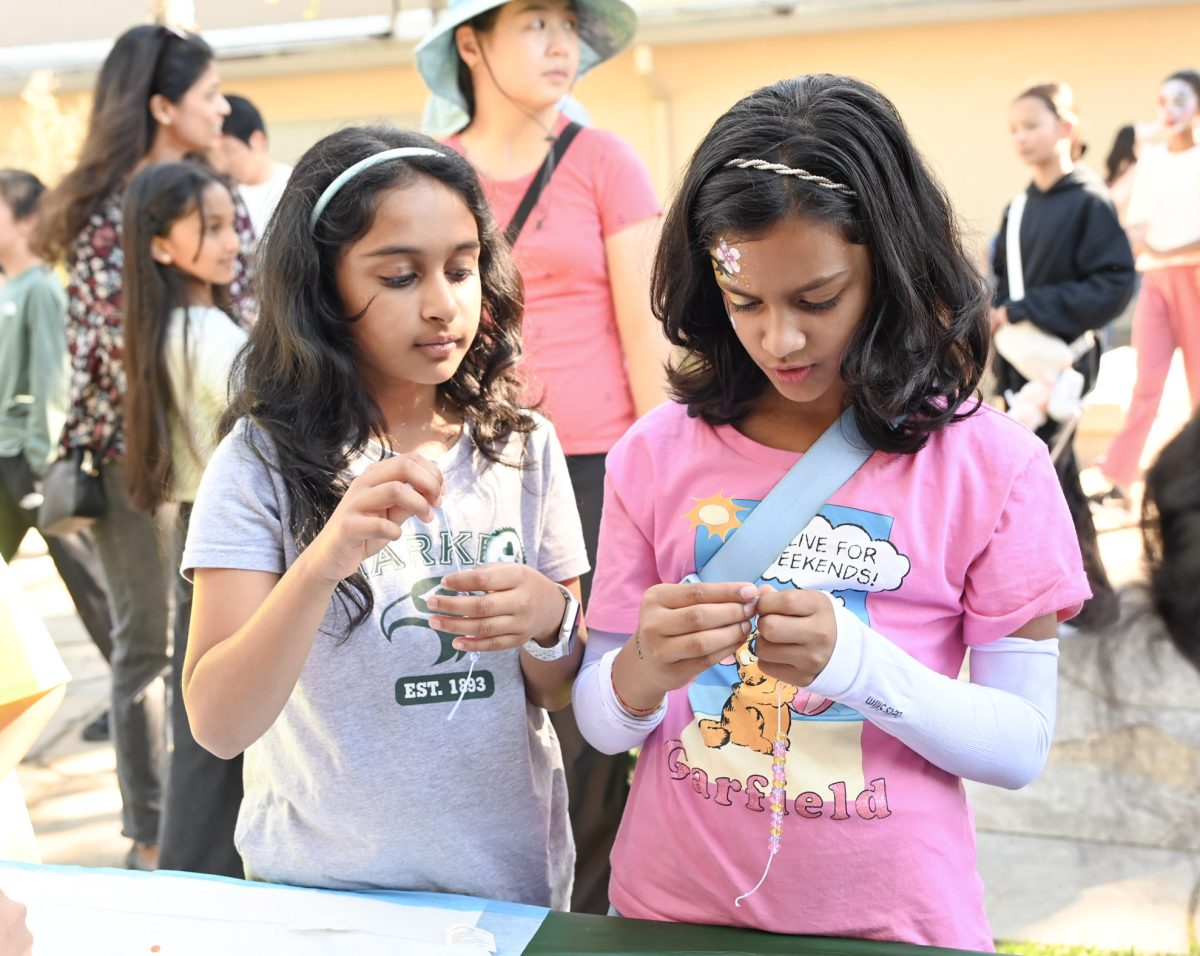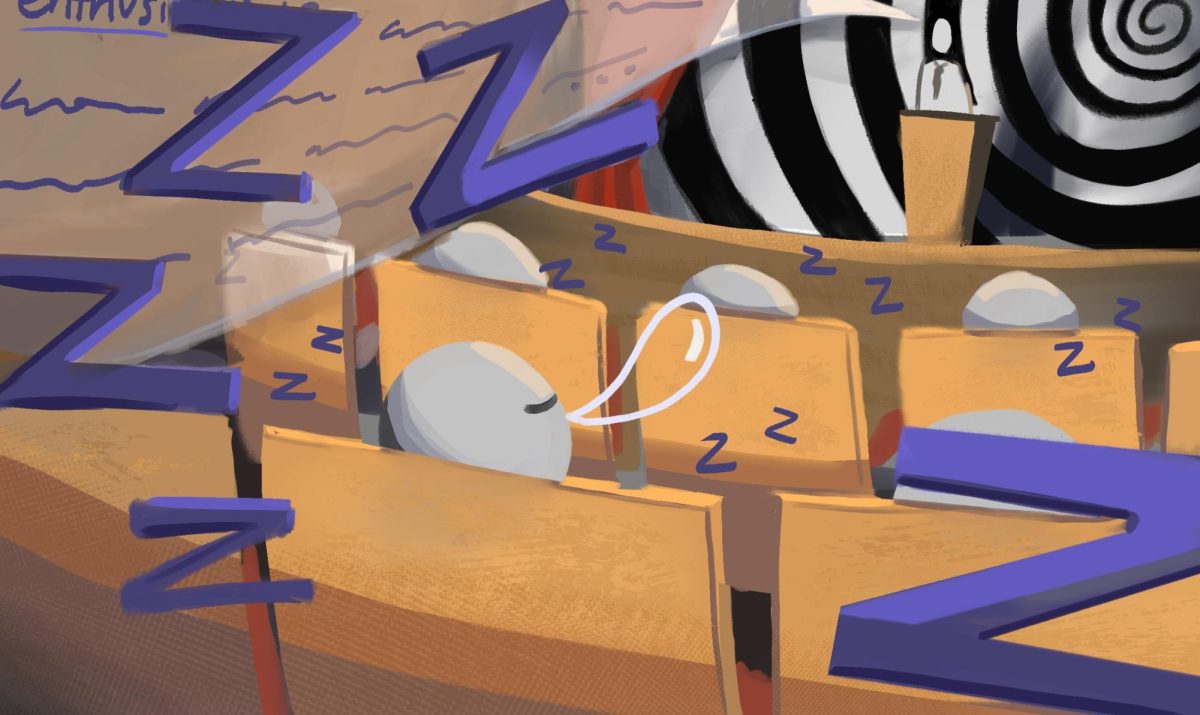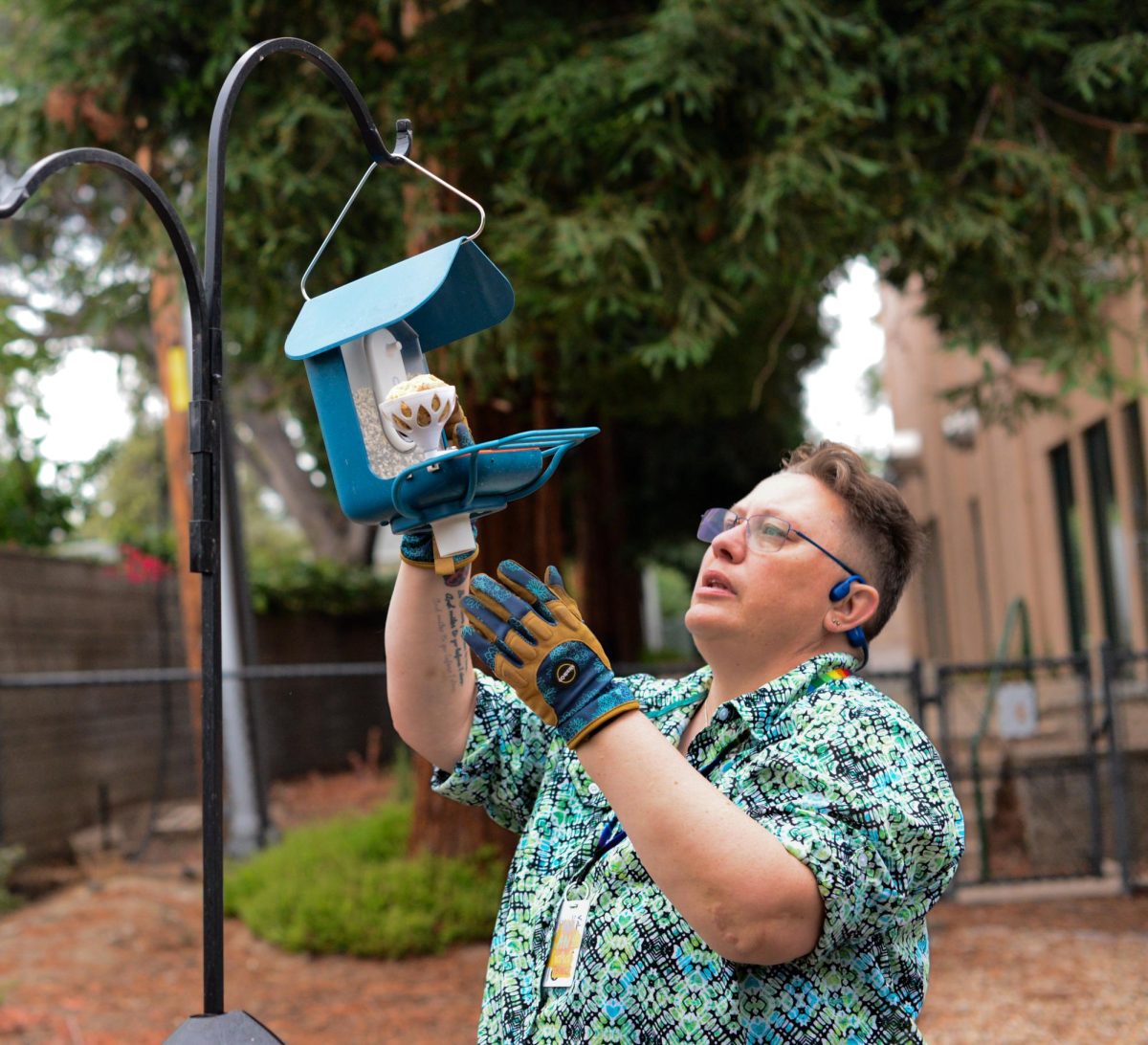On Saturday, May 26, Valedictorian Ramya Rangan spoke at the class of 2012’s graduation ceremony. She was granted this opportunity by maintaining the highest cumulative grade point average of her class. Below is the transcript of the speech.
Good morning faculty, staff, family, friends, and most importantly, the graduating class of 2012! It’s really an honor to be able to speak to everyone here today.
Now, before I get too far along in this speech, I have to note that the credit for us arriving here doesn’t completely belong to us. The real credit goes to the parents and siblings here who’ve stuck by us, whether on the night before an APUSH test or on the first day of summer break. The credit goes to the teachers who inspired us everyday. The credit goes to our class deans, Mr. Barth, who dealt with us when we were somewhat clueless freshmen, and Doc Harley, who’s been protectively towering over all of us these past three years. Thank you, because you’ve all made our journey through high school pretty amazing.
Over the past few months, my parents have joked that my new catch-phrase seems to be “What’s the point?”, a question that I’m sure has plagued many senioritis-ridden households this semester. Admittedly, I can understand why it’s frustrating to have your teen son or daughter question every chore, activity, or task. But I think that it’s essential to constantly and critically broach that question. This year at matriculation, Mr. Keller asked us to answer “What’s the point?” for ourselves. Now, as near high school graduates, it’s time we returned to this question. It’s time all of us, me included, escape our expectations to observe the possibilities that await us, as vast as the ocean off Laguna beach. It’s time we exchange others’ expectations for our own personal aspirations, passions, and dreams.
Let’s do a little thought experiment here. Imagine that somehow we face the apocalypse, and that it really does end with us. Maybe Necromancer Harley and his league of underclassmen zombies return, and King Huang isn’t there as our savior. What if our world actually does end this year, in 2012. With Armageddon fast approaching, can you think of three things you must do before the world ends? I’ll give you a couple seconds.
OK, got it? I think we all just asked ourselves what we truly care about, and I’m going to suggest that we should probably be doing those things whether or not we fear impending destruction. We should live so that we will be satisfied with our lives even in the event of this unannounced apocalypse. That way, whether the world ends tomorrow or with the Sun’s expansion five billion years from now, we were trying our best to do the three things we just thought about, or even better, the hundreds of things on our life’s bucketlist. If the apocalypse arrives, we’ll know that we were striving for something, something we thought was worth it.
This advice, to do what you care about, is one we’ve all heard hundreds of times before. But this year in Psychology, Ms. Horan mentioned something in our motivation unit that really resonated with me and made me realize that we should not just follow our passions, but also consciously try to keep them alive. At the time, we were discussing different kinds of motivation, dividing the drive into intrinsic and extrinsic factors. [OK, I can see you guys sighing “Oh Ramya” as I go off on this somewhat nerdy tangent, but I promise it’s relevant.] Extrinsic motivation would be like going to a club event solely for the free ice-cream. Perhaps you have no natural desire at all to go to that event, but with that powerful external motivator, free food, you go anyways. Now, intrinsic motivation is more innate, for instance, the class of 2012 wanting to stay late after school decorating campus during spirit week. We do this out of class pride, not for any external reward like spirit points. When people say to “follow your passion”, they refer to intrinsic motivation, something that gives you inherent joy. We should pursue dreams that, at the core of our being, resonate with us personally—in other words, those three goals you just considered.
Now, these terms, intrinsic and extrinsic motivation, seemed pretty intuitive. But the real shocker for me came when we learned that, according to research, extrinsic motivators, like money, fame, or college acceptances, could actually decrease your intrinsic passion. Now, I guess that makes a lot of sense too. As people hone in on their interests, perhaps pursuing them as college majors or jobs, they can become obsessed with the external reward, and forget to enjoy their passion for themselves. Still, I think the fact that extrinsic motivation tends to kill off your natural passion is one that all of us forget to consider, and yet one that seriously impacts our interests. Contrasting two of my interests, math and piano, has helped me understand this better.
Let me tell you a little bit about my experience with math over the past few years. When I started doing math contests years ago, I was honestly in love with the subject. I mean, recently, when I attempted to decipher my middle school journals, I found entire entries where I wrote just math problems, pretending (or believing?) that my diary would actually solve the problems and give me back the answers the next day. I think it’s safe to say that I was completely obsessed.
But the math contest world was full of extrinsic motivators. Indeed, the very word “contest” implies that the goal was to win rather than to enjoy math. As those motivators got more enticing, I began to study new facts just for that next competition. I dismissed interesting ideas that I might have wanted to explore on my own, because they were clearly useless in the competition world. With the growing pressure of needing to win, I began to lose the excitement I had once had for doing contest math, and honestly, I regret that I let extrinsic motivators get in the way of my passion.
Now, with piano, one of my other interests, I’ve done things a bit differently. Over the past decade, playing piano has far from escaped the influence of extrinsic motivators. There have always been contests, auditions, or performances to prepare for. But two years ago, in pursuit of my intrinsic desire to explore new kinds of music, I joined Bel Canto as their pianist, hoping to try out songs from Broadway to Classical to jazz. And now I can honestly say I’m proud of my growth with this group. With them, I’ve figured out how to fake it when your sheet music somewhat unfortunately decides to fall over during performance. I’ve donned the title “Venerable Master Rangan,” acting as Mama Bel Canto as I dealt with a rambunctious group of surprisingly loveable freshmen. Those experiences were ones I had wanted, milestones on my personal pre-apocalypse list, and because of that, Bel Canto is something I’ll cherish. With piano, I paired an extrinsically motivated activity, one that had given me awards, plaques, and accolades, with something of my own, something that gave me intrinsic fulfillment and satisfaction. That is why my interest in music has stayed strong, and hopefully it will remain strong through my life.
What does this mean for you? Well, Class of 2012, if we strive for what we care about, I believe we can realize our potential for greatness. Here in high school, we’ve begun to find our personal aspirations, and more importantly, we’ve shown that we are willing to do the work for the things that matter to us. With basketball’s unprecedented run to CCS semifinals, our swimmers’ ceaseless victories in the pool, a record-breaking number of Intel semifinalists, the largest group of conservatory certificates ever, and countless more achievements, this year we’ve made Harker history across the board. We’ve even taken that energy to spirit, creating all-inclusive skits, an incredible float and eagle, and our duct-tape boat, our Black Pearl, which was so beast we couldn’t replicate it ourselves.
We needed people who were really invested in what they did to achieve those feats, and that kind of passion is what we’ll need in the future. Sitting next to you right now could be the next great journalist, environmental activist, neuroscience researcher, composer, iPhone app developer, novelist, film director, and perhaps even the founder of a notorious online political debate forum. But to reach our potential, we need to make sure that our intrinsic love for these activities doesn’t just die off. We need to keep ourselves invested in what we do.
Protect your passions. They really are gems that we should look after dearly. It is rare to come by something you inherently love doing, and trust me, you really don’t want to ruin that for yourself. If you like to write, I’m not discouraging you from entering contests or publishing books for a living. By all means, do so. We don’t want you eating ramen until you’re 40. But never give up your literary freedom for those prizes. Remember to write out of passion, not for the reward. If you’re into scientific research, yes, by all means, focus on that project you’re trying to get published, but remember to save time to freely explore your own unique ideas and to just read some cool new science articles on your own. Have fun with what you like; don’t let it become a chore, and whatever you do, don’t let your extrinsic motivations take over.
At this precipice of change, I think we’re all incredibly lucky. Lucky, because moments of change give us the courage to step away from who we were and become who we want to be. In stretches of continuity, we sink into pattern and we fall victim to repetition. But now, we have an irreplaceable moment to reflect, a chance to change. As we plan our next years, we can and should take that chance. We should have the courage to navigate the vast labyrinth of possibilities that will greet us in the future, and we should set off on our own path, in our own way.
When facing the multitude of choices that we will inevitably encounter in college and beyond, let’s live our lives like that apocalypse just might happen, like we don’t have forever to pursue our passions. Let’s reach for our three goals, our hundreds of goals. Let us achieve what we want to achieve, and let us do that not next year, not tomorrow, but now. Thank you.


















![“[Building nerf blasters] became this outlet of creativity for me that hasn't been matched by anything else. The process [of] making a build complete to your desire is such a painstakingly difficult process, but I've had to learn from [the skills needed from] soldering to proper painting. There's so many different options for everything, if you think about it, it exists. The best part is [that] if it doesn't exist, you can build it yourself," Ishaan Parate said.](https://harkeraquila.com/wp-content/uploads/2022/08/DSC_8149-900x604.jpg)




![“When I came into high school, I was ready to be a follower. But DECA was a game changer for me. It helped me overcome my fear of public speaking, and it's played such a major role in who I've become today. To be able to successfully lead a chapter of 150 students, an officer team and be one of the upperclassmen I once really admired is something I'm [really] proud of,” Anvitha Tummala ('21) said.](https://harkeraquila.com/wp-content/uploads/2021/07/Screen-Shot-2021-07-25-at-9.50.05-AM-900x594.png)







![“I think getting up in the morning and having a sense of purpose [is exciting]. I think without a certain amount of drive, life is kind of obsolete and mundane, and I think having that every single day is what makes each day unique and kind of makes life exciting,” Neymika Jain (12) said.](https://harkeraquila.com/wp-content/uploads/2017/06/Screen-Shot-2017-06-03-at-4.54.16-PM.png)








![“My slogan is ‘slow feet, don’t eat, and I’m hungry.’ You need to run fast to get where you are–you aren't going to get those championships if you aren't fast,” Angel Cervantes (12) said. “I want to do well in school on my tests and in track and win championships for my team. I live by that, [and] I can do that anywhere: in the classroom or on the field.”](https://harkeraquila.com/wp-content/uploads/2018/06/DSC5146-900x601.jpg)
![“[Volleyball has] taught me how to fall correctly, and another thing it taught is that you don’t have to be the best at something to be good at it. If you just hit the ball in a smart way, then it still scores points and you’re good at it. You could be a background player and still make a much bigger impact on the team than you would think,” Anya Gert (’20) said.](https://harkeraquila.com/wp-content/uploads/2020/06/AnnaGert_JinTuan_HoHPhotoEdited-600x900.jpeg)

![“I'm not nearly there yet, but [my confidence has] definitely been getting better since I was pretty shy and timid coming into Harker my freshman year. I know that there's a lot of people that are really confident in what they do, and I really admire them. Everyone's so driven and that has really pushed me to kind of try to find my own place in high school and be more confident,” Alyssa Huang (’20) said.](https://harkeraquila.com/wp-content/uploads/2020/06/AlyssaHuang_EmilyChen_HoHPhoto-900x749.jpeg)



